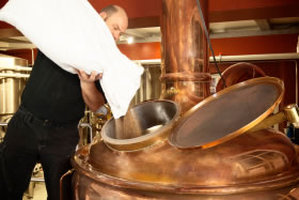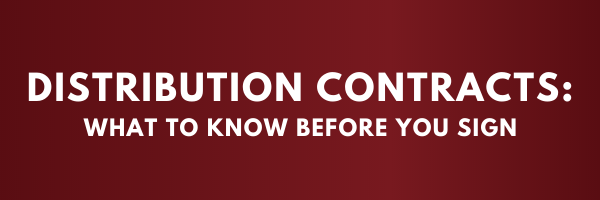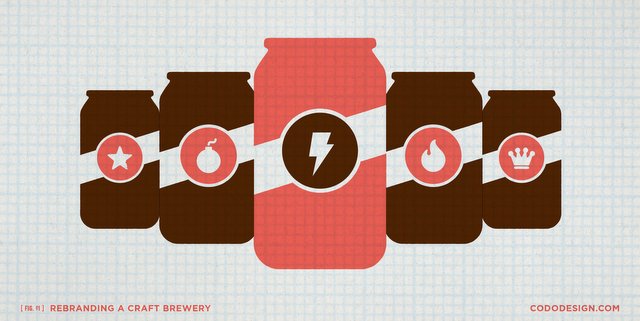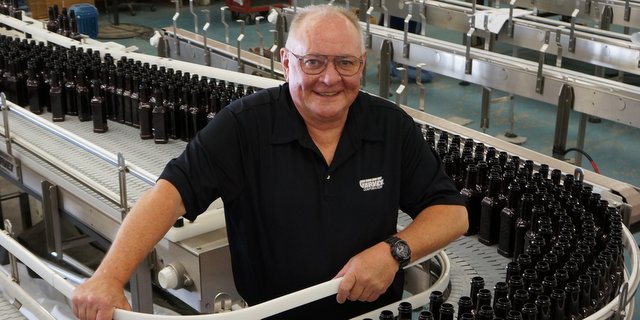|
We found this wonderful article on distribution contracts for breweries over at www.craftbrewingbusiness.com written by Candace L. Moon of The Craft Beer Attorney, APC. We have re-blogged it for you below. Enjoy.
Original Source: Craft Brewing Business Contracts are a fact of life. You sign them as an individual and that will hold true for your brewery the more you grow and expand. That being said, when it comes time to distribute, there are unique considerations required before signing the dotted line. Distribution contracts have a special set of laws that govern what can and cannot be agreed to, the history of which can be traced to anti-monopolistic policies. Many brewers, unaware of the special waters they are treading, treat distribution contracts like any other contract. Unsurprisingly, distributors are also frequently as uninformed about what these special rules are, and it shows in the contracts they draft. This is a recipe for disaster down the road as breweries wish to adjust the distribution plans for their growing business. Ending a contractThe most pressing issue usually is how breweries can end a contract with a distributor. A number of states have adopted cause-only rules. At the most basic level, the rule says you cannot end a contractual relationship with a distributor without “good cause.” Some states go even further and define what good cause means, while others allow individual parties to contract those meanings for themselves. So what happens if you terminate a distribution contract without good cause? Under most state laws, the terminated distributor must be paid the fair market value of the distribution rights in relation to your particular brewery, including any goodwill that accompanies the relationship.If you are allowed to define what good cause can mean in the contract, then just about anything you want (and can convince the other party to agree to) is fair game. Simply write out a list of things that will constitute good cause in the contract, and that list will be binding. If you do not define good cause, then the fallback standard is usually impractically high, and your relationship with that distributor is generally not over until the distributor decides that it is. Popular choices when defining good cause include: failure to pay within a certain time period, failure to maintain minimum orders, and failure to meet minimum shipping and handling requirements. As an aside, it is worth noting that, as with all contracts, there are limits to what can be agreed upon. For example, every contract drafted within the United States is subject to the covenant of good faith and fair dealing. While the discussion of what that entails could be an entire article in itself, for now, know that everyone is legally bound to act honestly and fairly in his or her contracts. In a similar vein, some of the states that allow parties to define good cause for themselves restrict what can be agreed to even more tightly than good faith and fair dealing. A handful of states require that good cause must be limited only to what is considered commercially reasonable. Commercially reasonable is a moving target, but courts have looked to a variety of factors in the past when attempting to pin it down. One of the more popular approaches is consistency is contracting. In other words, your contract in one state might be compared to your other distribution contracts to see if the standards being applied are reasonably consistent. If you manage to negotiate better-than-usual terms in your distribution contracts, courts examining the contract may want to see that these terms were achieved in exchange for something of equal value. A matter of quid pro quo, so to speak. Some states go so far as to mandate that similar distributors be treated similarly; this is generally referred to as anti-discrimination or non-discrimination. Terminating without good causeSo what happens if you terminate a distribution contract without good cause? Under most state laws, the terminated distributor must be paid the fair market value of the distribution rights in relation to your particular brewery, including any goodwill that accompanies the relationship. Like good cause, some states dictate what is the fair market value and some allow the parties to decide for themselves. Regardless, the means of calculating this fair market value needs to be spelled out in the distribution contract so that there is no confusion (or litigation) later on. When allowed to define the value, different breweries have used different methods. One of the most popular approaches involves matching the profit for a certain number of months preceding the termination with a multiplier. How many months will of course vary based on the size of your brewery and the extent of distribution. Explicitly negotiate this with the distributor and include it, labeled as such, within the contract. Other special considerations include specific notice requirements when attempting to terminate the contract, the distributor’s right to cure any deficiency in the relationship, exclusivity requirements for particular territories, and anti-waiver provisions. Anti-waiver provisions accomplish several things. First, they void any out-of-state forum selection clause that the distribution contract has. Generally, parties can choose the law of any state they like regardless of where the parties are located or where the transactions are taking place. Certain states have decided that the regulation of alcohol distribution within its borders is so important that its own laws will govern irrespective of what the parties would prefer. Hence, distribution contracts in California, for example, will always be governed by California law, even if the parties agreed to use Colorado law instead. Note that many distributors are unaware of these rules and actually purport to waive this particular rule (sometimes explicitly, sometimes accidentally). Just know that, regardless of what the contract says when you sign it, if you are in an anti-waiver state, then that state’s laws will apply. Not every provision mentioned above applies in every state. Some states have very simple distribution laws; some states have very complex distribution laws. This is an area fraught with potential litigation pitfalls, so it is important to consult an attorney before signing the contract. You may very well be spending the rest of your brewery’s life with this distribution company, for better or for worse, so be sure to put all of your cards on the table before you walk down the aisle together in commercial matrimony. Candace L. Moon is a San Diego-based attorney who has spent the last four years dedicating her law practice to the craft beer industry. She has worked with over 100 craft breweries and craft breweries-in-planning nationwide, handling business entity formation, alcoholic beverage law, contract review, trademark law, as well as other legal needs. Her clients range from Green Flash and Drake’s to Jamil Zainasheff’s Heretic Brewing. Moon’s undergraduate degree is from the University of Virginia and her juris doctorate is from Thomas Jefferson School of Law in San Diego, Calif. She has been a member of the California State Bar since 2008 and the Brewer’s Association since 2009. Contact her at [email protected]; her website, www.CraftBeerAttorney.com; or her Twitter account,CraftBeerAttny.
0 Comments
 The article below as originally found on www.craftbrewingbusiness.com, written by Chris Crowell and published on 8/7/14. It examines the particular case of 10 Barrel Brewing Co's recall and paints an excellent picture of a why Liability Insurance is a MUST for Breweries... "10 Barrel Brewing Co. conducted a voluntary recall of two of its beers, Swill and Beer #1 from its number series, after discovering that some of the product may be experiencing secondary fermentation in the bottle, causing over carbonation. As a precaution, 10 Barrel Brewing removed all inventory of Swill from its wholesalers and retail shelves and asked that customers immediately dispose of any Swill already purchased. “Swill is brewed with a completely different process than any of our other beers, isolating this issue to only Swill,” the company noted in its recall notice. “This recall does not affect any of 10 Barrel Brewing’s other products and we’re completely confident that all of our other beers are of the highest quality.” 10 Barrel also added this: Consumers: if you have any Swill in your home, please do not open it, attempt to transport it, or return it to your retail store. Dispose of the product by following these steps: (i) Before disposing of any bottles of Swill, please put on protective gloves and eye wear; (ii) Place all remaining Swill bottles in a closed box and place immediately in a secured dumpster or trash container outside. “We take the utmost pride in producing an extremely high quality product and continuously striving for new and innovative beers to send to the consumer. Unfortunately in this instance, despite a rigorous testing and brewing quality-‐check process, we didn’t hit the mark,” the company stated. So, what was the problem? Apparently it stems from an enzyme the team was using that was meant to break down complex starch strains and reinvigorate early fermentation in some of its sour beers." Hopefully, 10 Barrel Brewing Co. was insured, because if anyone DID get injured by their over-carbonated beers, they could be on the hook for a lot of money. To learn more about Liability Insurance and other coverages we can provide your brewery, contact us for a quote BY CLICKING HERE.  Managing workers' compensation insurance costs can be tricky. You want to protect your employees while still keeping premiums as low as possible. Of course, avoiding accidents is the surest way to save money on coverage. But if an accident does happen, and they inevitably do, you need a carrier who will be there, working to get your injured workers appropriate medical treatment and managing their claims so they can get back to work quickly and safely. Workers compensation is a “no fault” system where employees that are injured on the job and in the course of employment. Failure to meet your workers’ compensation coverage requirement can leave your business exposed to both the full costs of workers’ compensation claims (through litigation) and additional regulatory penalties levied by the states, which can be severe. Part Two of the workers compensation policy, Employer’s Liability, is often overlooked, yet a very important exposure for businesses to consider. Employer’s liability fills the gap between the narrowness of the workers’ compensation policy and exclusions in the commercial general liability policy. Employers liability protects the employer from the employee, family member, or another entity seeking damages from the employer. In order to seek damages, the person must prove: 1) there was a duty owed to injured individual; 2) the duty was breached by the employer; 3) an injury occurred; and 4) the breach of duty was the proximate cause of the injury. The cost of workers’ compensation insurance is determined based on a business’ risk classification rate and its individual payroll. This is where Regnier Insurance can be an invaluable partner. We help our policyholders contain the costs associated with workplace injury or illness through our Claims Management, Managed Care Services, and Loss Control. To learn more about Workers' Comp and how to get a free personalized quote, send us an e-mail at [email protected] or call us at 512-448-9928. by Cody Fague and Isaac Arthur (as found on craftbrewingbusiness.com)This piece is aimed at established breweries. Whether you’ve been brewing for five years, or for 25, rebranding can be an important step to reflecting positive changes and growth to your audience. But it’s not something to be taken lightly and there are some important factors that should drive the decision. Let’s talk about some of these reasons as well as additional issues to consider before undertaking the process.
Starting off, businesses don’t rebrand just for the sake of rebranding. “Hey, it’s Tuesday. Let’s spend $50K!” There’s got to be a problem you’re trying to solve, or an opportunity you can’t pass up. Some reasons a brewery may consider rebranding:
Read the Full Article Here By Keith Gibbons (as found on www.craftbrewingbusiness.com)
The science of commercial beer goes beyond the chemistry of brewing. The process of packaging it is an equally impressive engineering feat, requiring bottling, canning, kegging, labeling, sorting, accumulating, boxing, palletizing, shipping and so much more in between. Visit a packaging and distribution center at a brewery like New Belgium Brewing Co. and the automation of the packaging process can look a little like an ultra-complex Rube Goldberg Machine. As craft breweries grow, their bottling, canning and packaging lines will become interconnected chains of automated systems ranging from filling lines and labelers to bottle conveyors and case erectors. The process of engineering and re-engineering these packaging lines (as brewers grow) can be quite complex and expensive. To help prepare upcoming brew barons for their future packaging needs, we tapped the big brains of some of the industry’s most successful craft brewers and some of the industry’s most well-respected manufacturing brands. Those awesome insights are below, ranging from production systems engineering to packaging hall design. We raise a hearty toast of thanks to everyone involved. The importance of preventive maintenance Matt Smith, packaging manager Ninkasi Brewing Co. (Eugene, Ore.) Whether you own a shiny brand new packaging line or a boneyard of random packaging equipment, there is one important item to keep focus on. That item is preventive maintenance. It’s the only way to avoid machine failure and to help prevent future breakdowns. Greasing the same zerks every week may seem redundant at times, but something so small will help ensure the longevity of your packaging equipment. Initiating a preventive maintenance schedule is fairly easy to create and implement. A good place to start is to go through all of the current machine manuals on hand, and review and record the recommended maintenance schedules listed in those manuals. An even better idea would be to call the machine manufacturer just to make sure all of the information in the manual is accurate and up to date. If no manual can be found, then contacting the machine manufacturer is the best option for replacement. Gather all the information you can and make a specific three-ring binder for each machine with all of the scheduled repairs and overhauls listed very clearly for the operators to understand. This will also help maintenance personnel know which machine needs attention and how frequently. Setting a specific date every week or month for scheduled maintenance is another great way to ensure your packaging equipment will last and perform how you need it to. Staying on top of preventive maintenance will not only prolong machinery life but will also improve the quality of the product you are packaging. Cheers! READ THE FULL ARTICLE HERE |
WinStar
|
|
© 2024 WinStar Insurance Group
13625 Ronald W. Reagan Blvd. Building 3, Suite 100 Cedar Park, TX 78613 |
IMPORTANT NOTE: This Web site provides only a simplified description of coverages and is not a statement of contract. Coverage may not apply in all states. For complete details of coverages, conditions, limits and losses not covered, be sure to read the policy, including all endorsements, or prospectus, if applicable. Coverage CANNOT be bound, amended, or altered by leaving a message on, or relying upon, information in this Website or through E-Mail.
Licensed & doing business in the following states only: Texas, New Mexico, & Oklahoma
Licensed & doing business in the following states only: Texas, New Mexico, & Oklahoma




 RSS Feed
RSS Feed


